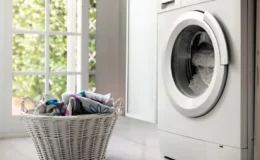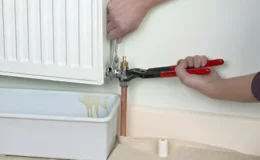
What is the most efficient form of home heating?
Domestic heating efficiency is high on the agenda nowadays due to the energy crisis. People want to know what is the most efficient and cost-effective way of heating a home?
With energy costs consuming the majority of the household budgets, it is crucial to focus on ways to reduce heating costs by using energy efficient appliances. It does get more complicated as you start to compare one heating system against another.
There are a few facts to consider if you’re contemplating installing a new heating system. There is a wider choice of systems now available:
- Gas central heating
- LPG central heating
- Electric central heating
- Oil heating
- Renewable heating
- Infrared central heating
Electric heating Vs Gas heating
Keeping your energy bills low while keeping warm is commensurate as to how you actually heat your home.
Everyone wants to save a few pounds during the energy crisis, if possible, that’s a taken!
There might be ways to save on your energy bills but it does depend on the efficiency rating of the appliances and the energy tariff you are on. Some households will benefit from a slightly cheaper tariff (at night) if on Economy 7 or 10, which is a ‘time to use’ tariff.
Energy costs vary depending on the energy source i.e., electricity, gas and oil. Not everyone is connected to the National Grid. In remote rural areas, people have to rely on LPG or oil heating systems to warm the home, supplied via a fuel storage tank.
These heating systems usually require specialist equipment and installation. For example, LPG and oil need space to site the storage tank. Generally, the cost of LPG and oil is somewhere between that of gas (cheaper) and electricity (more expensive). Unfortunately electricity is the most costly energy source.
As mentioned above, one way to save energy costs is by taking advantage of low energy costs at night, when most of the nation is asleep. This usually means you can reduce electricity costs by using storage heaters or heating your hot water at night rather than during the day. However, it does depend on the tariff you are on.
The biggest problem is that the cost of energy can fluctuate sometimes on a daily basis. In winter energy prices can be more expensive even when purchased wholesale due to high demand.
Other factors impacting on energy cost are global economic conditions such as wars and recessions. So, trying to select a heating system that is good for the environment and kinder on the pocket, is a challenge!
How to be more energy efficiency in the home?
Heating your home requires energy and money, a lot of it!
Regular maintenance and upgrades can save money and increase your comfort and possibly avoid unnecessary breakdowns in the future. Heat dissipates causing heat loss through the walls and roof of a property.
The first thing is to make sure your home is well insulated to keep the heat in! Efficient cavity wall, loft insulation or floor insulation will reduce your heating bills. Insulating a hot water cylinder, draft excluders, and blocking off a chimney can save on your energy bills. All in, and as a ballpark figure as much as £500!
Heating Tips
- Set your thermostat conservatively in winter. Turn off the heating if you’re away from home. Lower the temperature when in bed.
- Keep heating and ventilation grills, baseboard heaters, and radiators clean and unobstructed by furniture, carpets or curtains.
- Remove any trapped air from radiators once or twice a season; If you do not know how to perform this task, call us and get professional assistance.
- Place heat-resistant radiator reflectors between the external walls and radiators.
- Turn off extractor fans in your kitchen, bathroom or utility room when the work is done. When replacing exhaust fans, consider installing higher-efficiency, lower-noise models.
- In winter, keep your curtains and blinds open during the daylight hours and close them at night to avoid heat loss.
When you purchase a new appliance, make sure its efficiency is high on the SEDBUK (Seasonal Efficiency of Domestic Boilers in the UK) scale. Always choose energy-efficient products using the SEDBUK guide. Ask an energy consultant for different types, models and designs to help you compare energy use.
What makes a heating system efficient?
Installing a new HVAC system is a long-term expensive investment. Some modern heating systems can achieve an efficiency of 96.5%, while older systems range between 56% and 70%. When purchasing a new heating system, consider factors such as efficiency, size and incentives.
Manufacturers display the Annual Fuel Utilisation Efficiency (AFUE) on the boiler Energy Guide label. This rating shows the heating system’s efficiency at different times throughout the year. Consider the Annual Fuel Utilisation Efficiency (AFUE) ratio; if the ratio is high, the appliance generates more heat than fuel consumption.
How to choose an efficient heating system?
Always look for a heating system that has a high AFUE rating that shows it’s an efficient system. You should also find one compatible with your home’s energy source. Some people prefer heating by electric while others prefer natural gas. Generally, natural gas is cheaper than electricity, with most householders choosing this option.
Types of heating systems
1. Boiler
Boilers are still the most popular. It is a system that can heat water in a cylinder and pump it around the property via radiators to heat your home. The boiler pumps water from the tank through several pipes to each radiator.
2. Renewable heat system
With gas and electricity prices rising, switching to renewable heating could be the right move for a more efficient and eco-friendly future for your home heating system. Renewable energy is a constantly replenishing source such as wind, water or sun. It can utilize a heat pump system, solar heating, biomass stoves and boilers.
3. Heat pump
A heat pump is a unit capable of both air conditioning and heating. However, there are a few things to consider before you purchase:
As they haven’t taken the heating market by storm they are expensive, as they are not yet in mass production. They require a specialist installation team (not cheap). It’s too early to predict their sustainability.
They are not, as you might think, entirely carbon neutral. Due to the work involved you will need planning permission. It can also have issues in cold weather. You can see it’s not an easy task of simply selecting a system you like the look of.
A heat pump draws air from inside your home and converts it to cool air when it’s hot outside. This means it is running all through summer and winter, which will affect running and maintenance costs!
4. Infrared heating system
Infrared heating is a cost and energy-efficient customised heating solution. The technology it’s based on is fairly new, at least in the IK. Infrared heating panels are very efficient, effective and a healthy way to heat your home.
Instead of heating the surrounding air like conventional heating, infrared radiation waves impact items in a room, including you! Simply put, infrared heating is the cheapest type of heater with no maintenance. Sounds OK?
Specifications of a CO alarm fitted by serviceteam
Replacing old equipment with state of the art equipment can make a big saving on efficiency and running costs. Switching every light bulb in your home to more energy-efficient ones can reduce energy consumption.
Don’t forget the loft insulation either. You can reduce energy consumption through behavioural changes. Switching off the central heating system and other electronic devices at night or when no one is home is a best practice to reduce energy consumption.
Limit the kids’ time on the internet and their playstation, good luck with that one! Turning off the light every time, when leaving a room. We all have to make sacrifices to keep warm and pay the bills. Look for minimal gains, we can all make them.
Need more help in finding the best heating system for your home? Then contact us today and get expert assistance in choosing the most efficient heating system for your residential property and family needs.






